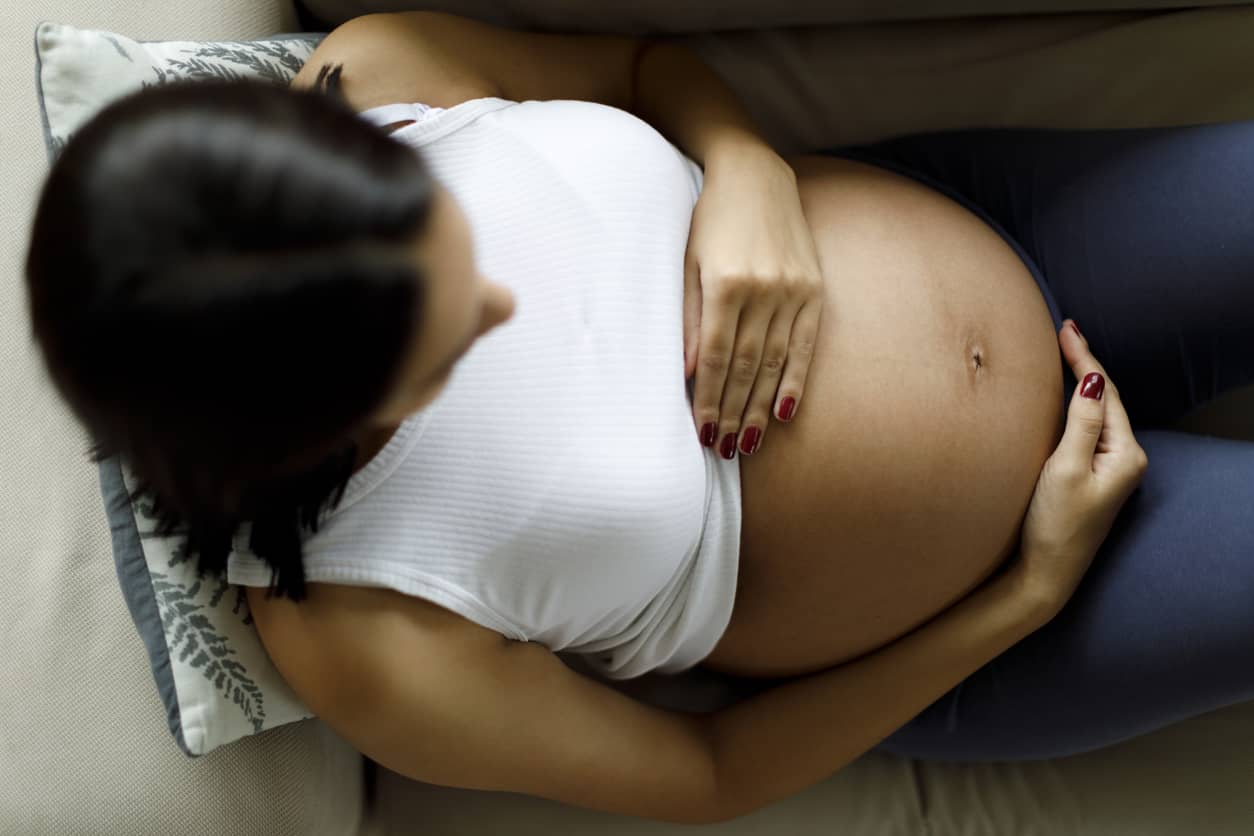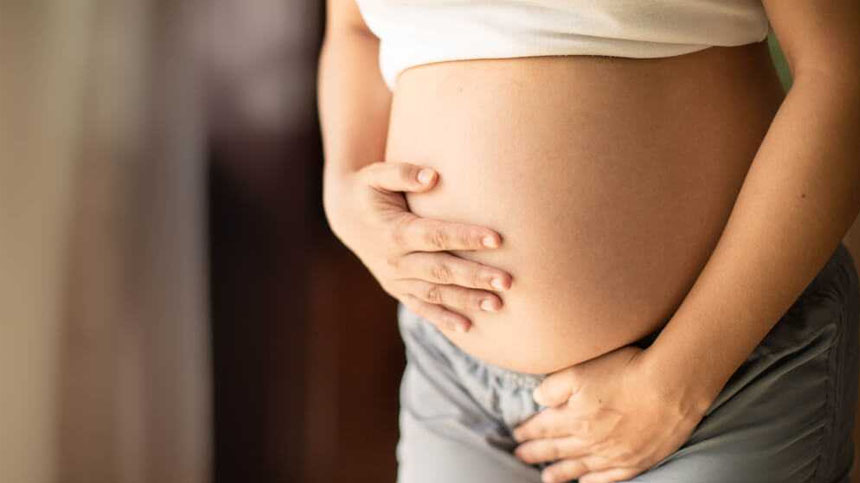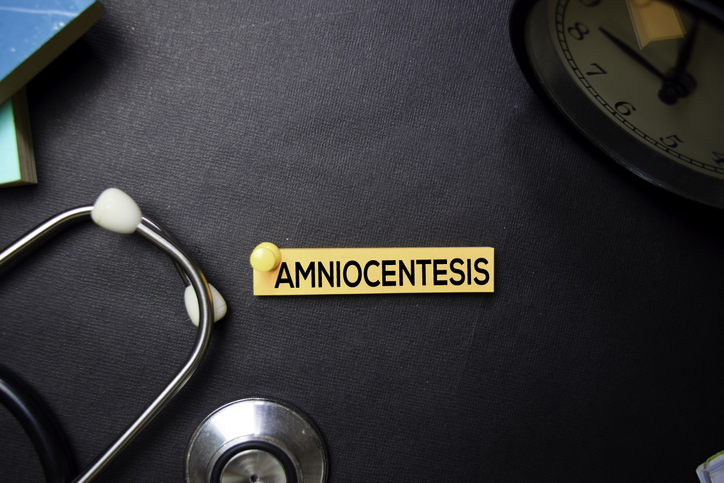If you’re wondering if you’re pregnant, there are various things you can look out for, such as feeling sick or having sore breasts. But if you have a regular monthly menstrual cycle, one of the earliest and most reliable signs of pregnancy is missing a period.
When you’re pregnant, you stop having periods. Some people still get bleeding during pregnancy, which may look or feel like a period. And you might have heard stories about people who had bleeding throughout their pregnancy, so they didn’t realise they were pregnant. But in these cases, the bleeding won’t have been a period.
While it’s usually nothing to worry about, if you have any bleeding during pregnancy, you should speak to your midwife or doctor. Read on to learn why you don’t have periods during pregnancy, and the possible causes of bleeding while pregnant.
Periods and pregnancy
You get pregnant when a sperm joins with (fertilises) an egg from one of your ovaries – this is called conception. This fertilised egg then travels to your womb and plants itself in the womb’s lining. It’s now known as an embryo, and continues to grow into a baby.
When you’re not pregnant, your womb sheds its lining every month because an egg hasn’t been fertilised – this is your period. Once you’re pregnant, however, this doesn’t happen, so you stop having periods.

Causes of bleeding during pregnancy
It’s natural to feel a bit worried if you have bleeding during pregnancy, but it’s quite common and doesn’t always mean there’s a problem. Most people will go on to have normal pregnancies – but you should still tell your doctor or midwife about it as soon as you can, and immediately if you also have tummy pain.
The cause of the bleeding can vary, depending on what stage of pregnancy you’re at.
If you’re in early pregnancy, it could be:
- implantation bleeding. Small amounts of light bleeding, sometimes called ‘spotting’, can occur not long after conception – so you might think it’s a period. This happens when the embryo plants itself in the lining of your womb, and it’s a normal symptom of pregnancy
- changes in the cervix. The cervix is the neck of the womb that leads to the vagina, and it can change during pregnancy. A change called ‘cervical ectopy’ is common and it can cause bleeding, particularly during or after sex. It’s caused by changes in hormones, and usually goes away by itself 3 to 6 months after the birth of your baby
- an ectopic pregnancy. This is when a fertilised egg plants itself somewhere other than in the womb. Usually, it’s in one of the tubes that go from your ovaries to the womb, called the fallopian tubes. It doesn’t always have symptoms, but it can cause bleeding or a brown discharge and stomach pain. Sadly, the egg can’t develop into a baby and it is usually removed, either with medicine or surgery. It’s important to get medical advice straight away if you think you could have an ectopic pregnancy
If you’re further on in your pregnancy, it could be:
- changes in the cervix, as above
- a vaginal infection. This is usually nothing to worry about, and your doctor can suggest treatments
- a ‘show’. This is when a plug of mucus in your cervix comes away, and is a sign that your body is getting ready for labour. It can happen a few days before labour actually starts
- placental abruption. This is when the placenta starts to come away from the wall of the womb. It usually causes severe stomach pain, and sometimes bleeding. You should get medical help straight away if you have symptoms
- low-lying placenta (placenta praevia). This is when the placenta is attached to the lower part of your womb, near the cervix. The bleeding it causes can be very heavy and you may need emergency treatment, so you should seek help right away
Bleeding during pregnancy and miscarriage
You may have heard of miscarriage – this is when a baby is lost during the first 23 weeks of pregnancy. It can happen for various reasons, including hormonal or blood clotting problems, or if there is something wrong with the baby.
Most miscarriages happen during the first 12 weeks of pregnancy. The main sign is bleeding, along with cramping and pain in your lower tummy. If you’re having these symptoms it’s important to contact your doctor straight away. They may send you for tests, such as an ultrasound scan to check on the baby.
Around 1 in 8 pregnancies end in miscarriage among people who know they are pregnant. Many more miscarriages happen before people know they are pregnant.
Speaking to your doctor or midwife
If you have any bleeding during pregnancy, or any of the other symptoms mentioned here, you should contact your doctor or midwife straight away.
They will ask you about other symptoms, such as pain or light-headedness, and you may have an examination – this could be a physical check, an ultrasound or a blood test. In some cases, they may advise a stay in hospital to keep an eye on you and your baby.

Key points
- when you’re pregnant, you stop having periods
- although bleeding in pregnancy is normally nothing to worry about, it can be a sign of something more serious
- the cause of the bleeding can depend on what stage of pregnancy you’re at
- If you have any bleeding during pregnancy, contact your doctor or midwife straight away




